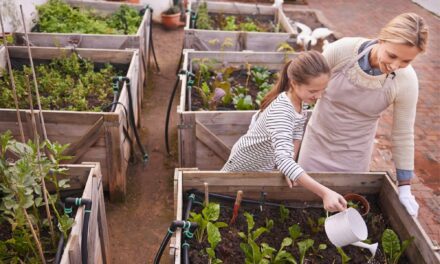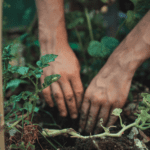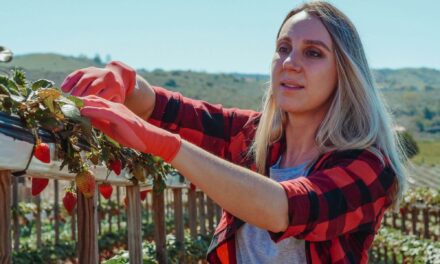
Exploring 10 Practices of Organic Gardening
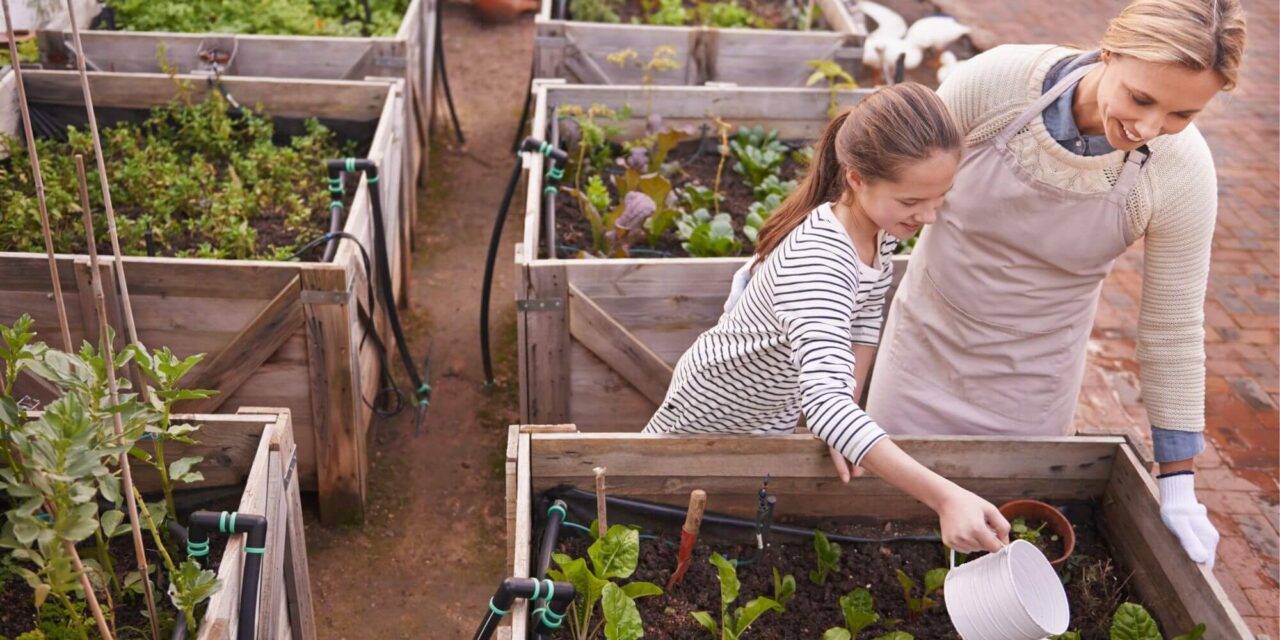
In this Article
Organic gardening practices have arisen as a symbol of environmental stewardship in a world waking to the necessity of sustainable living. This article will go into the complexities of growing a flourishing garden while adhering to eco-friendly ideals. Join us on an educational voyage into the world of organic gardening, where nature’s wisdom meets human innovation, giving not only abundant harvests but also a profound connection to the soil.
Why Start Gardening Organically?
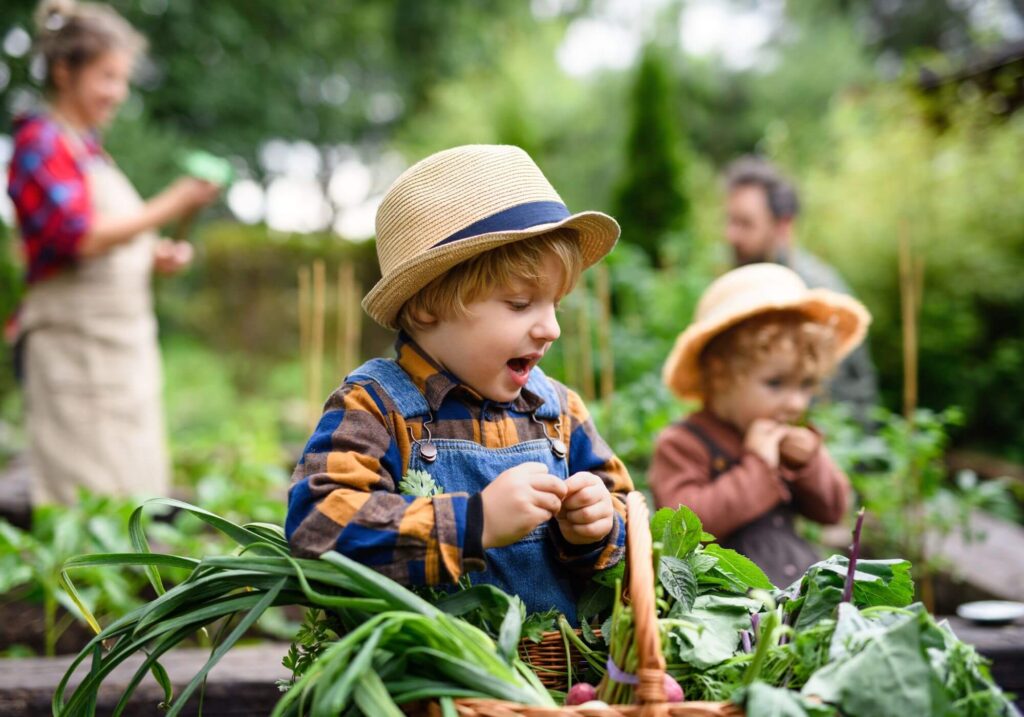
- A Better Home for Pollinators: Begin your adventure into organic gardening for the benefit of pollinators. By eliminating pesticides, you create a safe sanctuary for bees, butterflies, and other important pollinators, resulting in a healthier ecosystem.
- Nutrient-dense, healthier produce: Investigate the nutritional advantages of organic agriculture. Your produce keeps more nutrients without the use of synthetic chemicals, leaving you with a harvest that is not only delicious but also high in critical vitamins and minerals.
- Biodiversity Preservation: Investigate the role of organic gardening in biodiversity preservation. By producing a varied range of plants and avoiding monoculture, you help strengthen ecosystem resilience and safeguard endangered plant species.
- Reducing Environmental Impact: Learn about the environmental impact of conventional agriculture and why switching to organic gardening is so important. By reducing the use of synthetic fertilizers and pesticides, you actively reduce soil and water contamination, contributing to a healthier planet.
- Earth Connection: Discover the amazing connection to nature that organic farming brings. Working in sync with the ground, using natural processes, and following the growth cycles all contribute to a deep connection with the environment.
How is Organic Gardening Different from Regular Gardening?
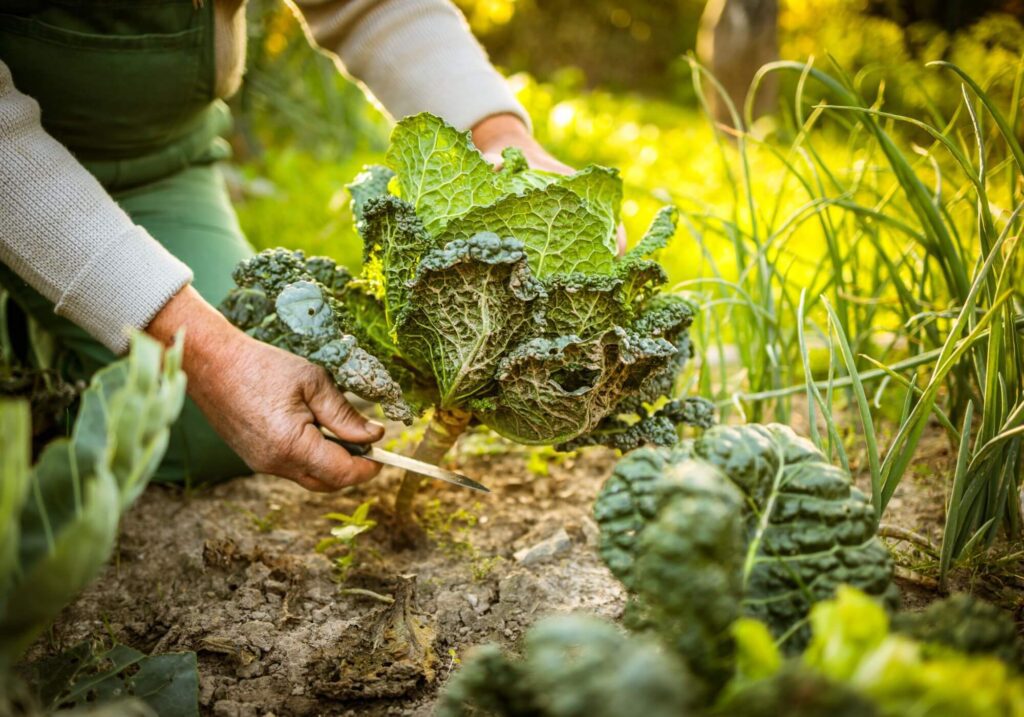
Organic gardening and regular gardening both have the purpose of nurturing plants in common, but their methodologies and ideas differ greatly. Understanding these contrasts is critical for those seeking to implement more sustainable and environmentally friendly gardening practices.
Chemical Utilization
- Organic gardening focuses on avoiding the use of chemicals. Organic gardeners do not use chemical pesticides, herbicides, or fertilizers. Instead, they rely on natural alternatives to maintain soil health and control pests, such as compost, organic matter, and beneficial insects.
- Regular Gardening: This often entails the use of synthetic pesticides to stimulate plant growth, control pests, and manage weeds. While these chemicals deliver immediate results, they can also contribute to soil degradation, harm beneficial creatures, and potentially have an influence on human health.
Soil Management
- Organic Gardening: Prioritizes the development and maintenance of good soil through techniques such as composting, cover cropping, and crop rotation. Organic gardeners see soil as a living ecosystem that may be naturally improved.
- Regular Gardening: Chemical fertilizers may be used to deliver necessary nutrients to plants. This strategy, however, can result in nutritional imbalances, soil depletion, and a loss of microbial diversity.
Biodiversity and Companion Planting
- Organic Gardening: Encourages biodiversity by producing a diverse range of plants and frequently incorporates companion planting techniques. This contributes to the creation of a balanced ecology in which different plant species support one another, discourage pests, and improve overall garden health.
- Regular Gardening: Monoculture may be used, in which enormous regions are dedicated to growing a single crop. Monoculture can make crops more vulnerable to pests and diseases, necessitating additional chemical interventions.
Genetic Modification
- Organic Gardening: The use of genetically modified organisms (GMOs) is prohibited. Organic gardeners favor heritage and open-pollinated seeds to preserve genetic variety and increase plant resilience.
- Regular Gardening: GMOs, in which plants are genetically altered for specific qualities such as pest resistance or increased yields, may be used.
Approach to Pest Control
- Organic Gardening: Natural pest control strategies such as introducing beneficial insects, companion planting, and employing organic pest deterrents such as neem oil are highlighted. The idea is to maintain a balanced ecology that keeps pests at bay without the use of man-made chemicals.
- Regular Gardening: Chemical insecticides are frequently used to control pests swiftly. This, however, has the potential to result in the development of pesticide-resistant insects, causing harm to non-target creatures and upsetting the whole ecosystem.
Synthetic vs. Natural Growth Regulators
- Organic Gardening: The use of synthetic growth regulators and hormones is avoided. Organic gardeners, on the other hand, rely on natural ways to encourage healthy development, such as proper pruning, soil additives, and plant diversity.
- Regular Gardening: Synthetic growth regulators may be used to control plant development and improve particular features. The long-term impacts of these compounds on plants and the environment, however, are still being investigated.
In essence, while regular gardening may prioritize convenience and quick results through the use of synthetic chemicals, organic gardening is based on long-term methods that prioritize soil health, biodiversity, and a holistic approach to plant cultivation. Personal beliefs, environmental concerns, and a dedication to promoting a more sustainable future through ethical gardening techniques all play a role in deciding between the two.
10 Practices of Organic Gardening
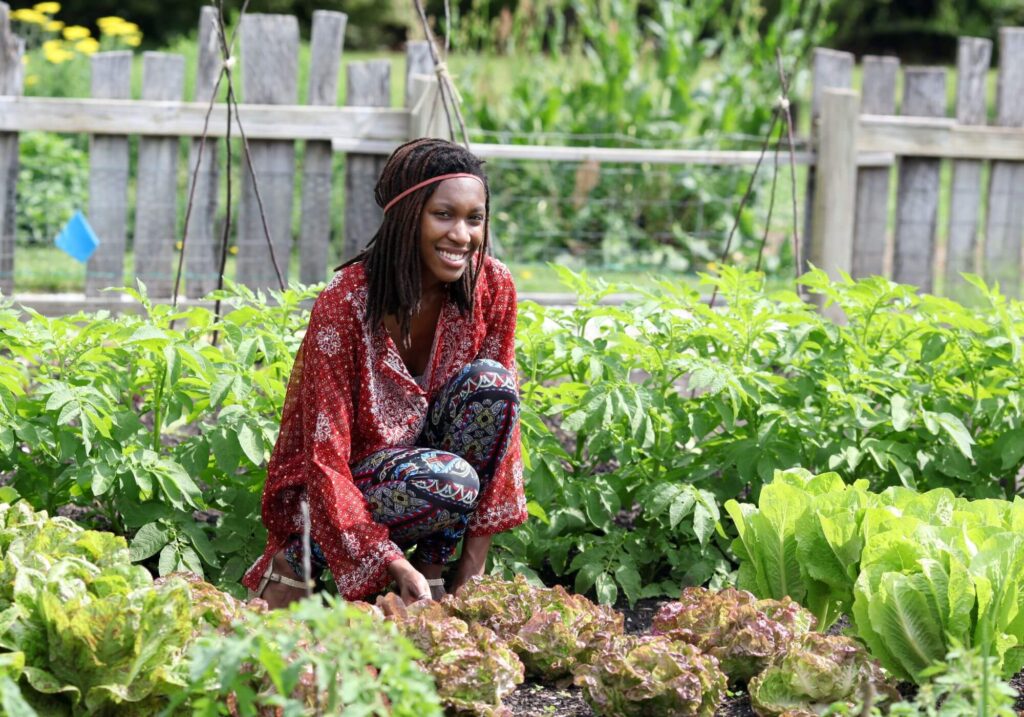
1. The Basics of Organic Gardening
Organic gardening approaches are based on a deep respect for nature’s balance. Practitioners cultivate a resilient ecology within their gardens by avoiding synthetic pesticides and fertilizers. This harmonizing method not only produces nutrient-dense produce but also promotes soil health, fostering a long-term cycle of growth.
2. Organic Gardening’s Foundation: Building Healthy Soil
Investigate the importance of nutrient-rich soil in organic gardening. Compost, cover crops, and organic matter improve soil fertility, allowing for healthy plant growth. This essential habit, emphasized in organic gardening concepts, is the foundation for growing thriving, chemical-free gardens.
3. Companion Planting Techniques
Investigate the companion planting technique, a crucial element of organic gardening. Gardeners can discourage pests, improve pollination, and maximize space use by strategically planting plants that benefit one another. This symbiotic strategy promotes biodiversity while also reducing the need for artificial interventions.
4. Natural Pest Control: Keeping the Garden in Balance
Discuss how to use natural pest control strategies in organic gardening. Organic approaches focus on maintaining a delicate balance that mitigates pest difficulties without turning to hazardous chemicals, from introducing beneficial insects to companion planting. Adopting these approaches not only safeguards the garden but also contributes to the ecosystem’s general health.
5. Organic Gardening Water Conservation
Emphasize the significance of water conservation in organic gardening operations. Mulching, rainfall gathering, and efficient irrigation systems not only conserve this valuable resource but also promote long-term water management. Organic gardeners play a critical role in alleviating water scarcity concerns by using these strategies.
6. Acceptance of Heirloom and Open-Pollinated Seeds
Discuss the significance of organic gardening with heritage and open-pollinated seeds. Unlike hybrid seeds, these seeds maintain genetic variety and flexibility, providing durable harvests. Organic gardeners help to preserve biodiversity and the resilience of our food systems by preserving the heritage of plant species.
7. Crop Rotation’s Function
Consider crop rotation as a fundamental organic gardening method. This method decreases pest pressure, prevents soil-borne illnesses, and optimizes nutrient consumption. Gardeners who practice regular crop rotation protect the long-term health of their soil and the productivity of their plots.
8. Sustainable Garden Design: Making the Most of Available Space and Resources
Investigate the concepts of sustainable landscape design, focusing on the optimal use of space and resources. Organic practices encourage careful layouts that optimize sunshine exposure, water usage, and general efficiency, from raised beds to vertical growing. This thoughtful approach not only improves aesthetics but also reduces environmental effects.
9. Nature’s Recycling System: Composting
Explore the skill of composting as a foundational component of organic gardening. Making nutrient-rich compost from kitchen scraps and garden trash nourishes the soil while reducing dependency on synthetic fertilizers. This circular strategy reduces waste while also demonstrating nature’s ability to recycle and rejuvenate.
10. Community and Education: Promoting Organic Gardening Techniques
To promote organic gardening, emphasize the need for community involvement and education. Enthusiasts can motivate others to embrace sustainable gardening by sharing their expertise, resources, and experiences. This collaborative effort develops not only a sense of shared responsibility but also a broader movement toward a greener, more organic world.
Organic Gardening Plants for Beginners
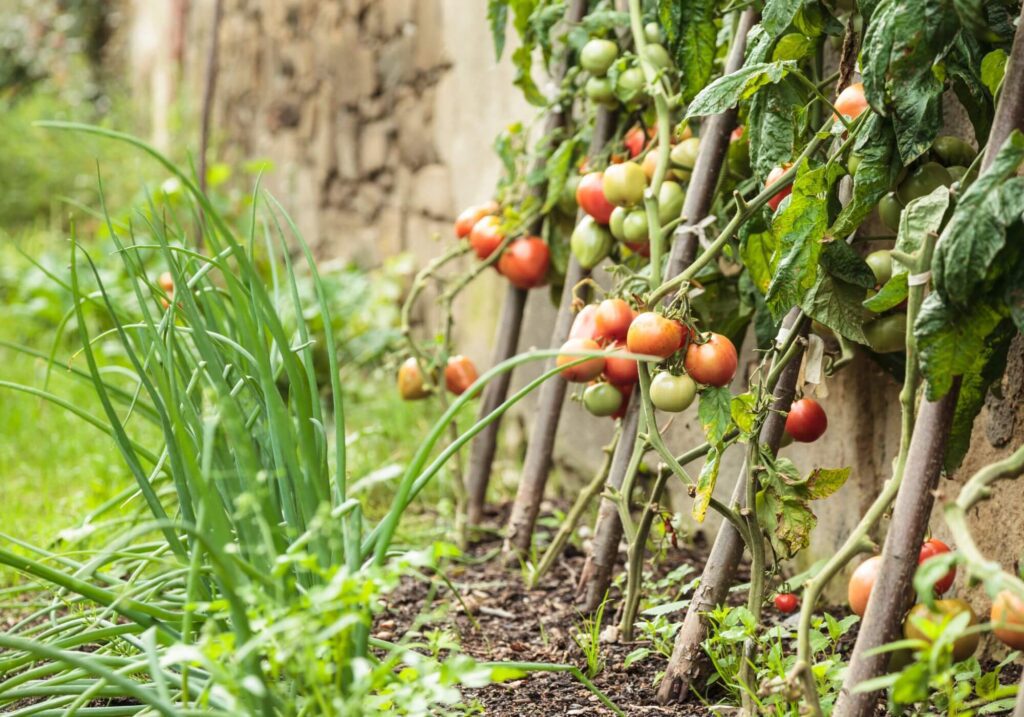
Herbs
The Key to Green Thumbs: Begin your organic gardening adventure with easy-to-grow herbs such as basil, mint, and parsley. These adaptable plants not only add taste to your recipes, but they also make good companions, repelling pests and supporting overall garden health.
Leafy Greens
Easy to Prepare and High in Nutrients: Discover the world of leafy greens, including lettuce, kale, and spinach, which are ideal for beginners. These hardy plants flourish in a variety of conditions, offering a steady supply of nutritious greens for your table.
Tomatoes
Juicy Reward for Hard Work: Dive into tomato gardening, a popular choice among new gardeners. Tomatoes, when properly cared for, produce pleasing results and provide a taste of the summer sun in every bite. To increase your gardening confidence, choose easy-to-grow cultivars.
Radishes
Instant gratification with quick wins: Experience the thrill of quick-growing radishes, which are great for beginners looking for speedy results. These crisp, peppery root vegetables are not only low-maintenance, but their rapid development also contributes to good soil.
Zucchini
Prolific and Easy to Grow: Take advantage of the adaptability of zucchini, a plant recognized for its prolific yields and forgiving attitude. Growing zucchini in pots or garden beds rewards beginners with a plentiful crop, making it a welcome addition to your organic gardening arsenal.
FAQ About Organic Gardening
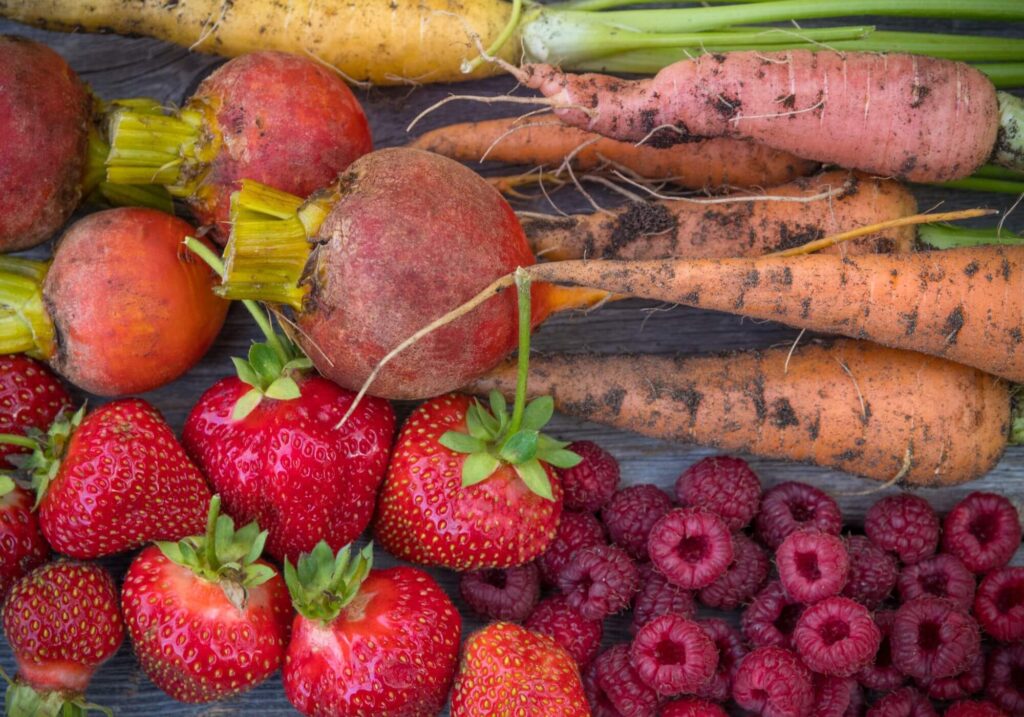
What distinguishes organic gardening from conventional gardening?
Organic farming emphasizes natural processes while avoiding the use of synthetic chemicals and pesticides. It focuses on improving soil health, encouraging biodiversity, and nurturing a healthy ecosystem.
How can I begin home composting for my organic garden?
To begin composting, gather kitchen scraps, such as fruit peels and coffee grounds. Combine it with yard debris, such as leaves and grass clippings. To guarantee sufficient aeration, turn the compost regularly.
Are there any plants that grow well in organic gardens?
Many plants, including tomatoes, peppers, herbs, and leafy greens, thrive in organic gardening. Choosing native and heirloom types is frequently advantageous for organic gardening.
How can I deal with bugs without using pesticides?
Use natural pest control strategies to prevent pests, such as introducing beneficial insects, companion planting, and utilizing neem oil or soapy water solutions.
Can I grow organic vegetables in a tiny space or in containers?
Without a doubt! Organic gardening can be done in tiny areas or containers. To maximize your space, use raised beds, vertical gardening, and compact plant species.
Summary
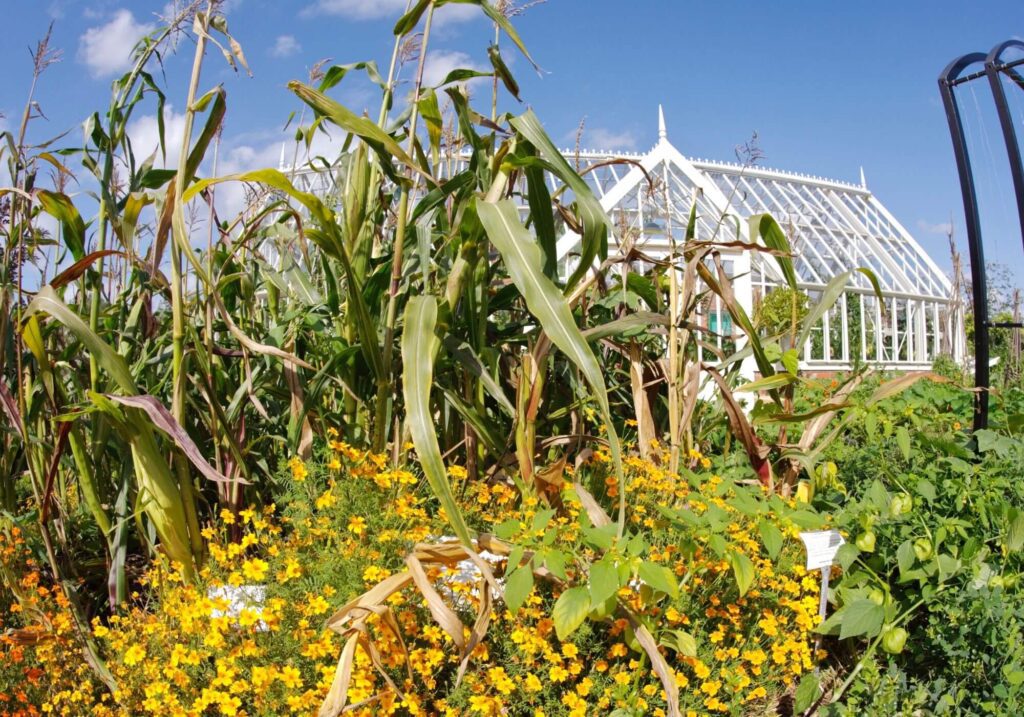
As we near the end of our investigation into organic gardening practices, it becomes clear that managing a garden entails more than just producing plants. It is a symbiotic relationship with nature, a deep connection with the Earth. By incorporating these techniques into our gardening habits, we not only produce plentiful, healthy harvests, but we also contribute to a global shift toward sustainability. Let us continue to cultivate our gardens with the wisdom of organic principles, sowing the seeds for a future in which the environment and we both flourish.






